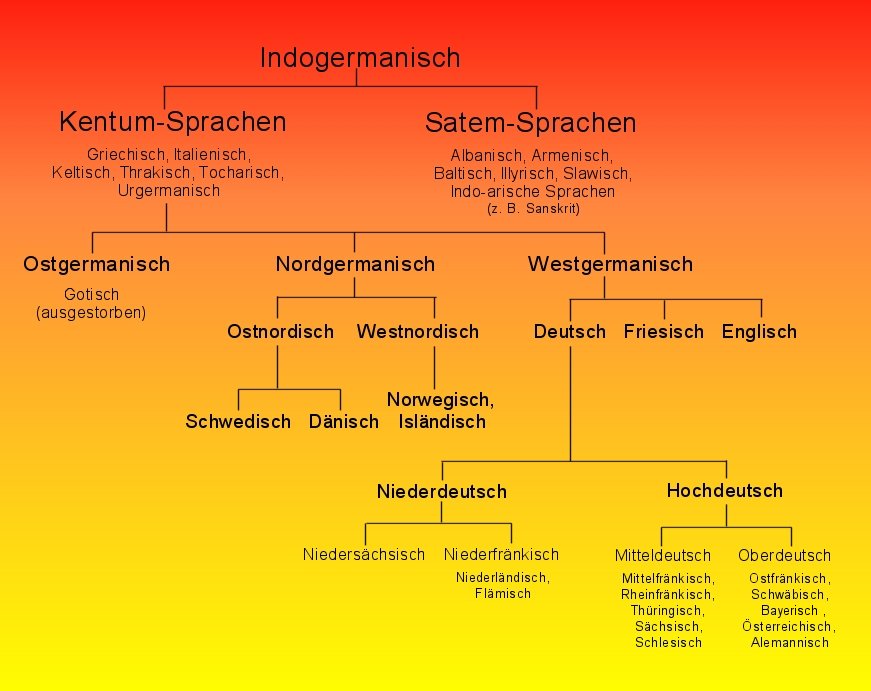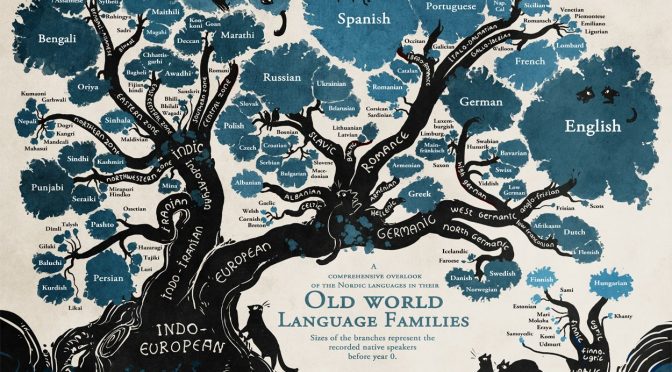Author Jadranka Bokan
German and English were earlier one and the same language before they became two separate languages. Since they were one and the same language back then, there are some similarities between them. Some of them are not that obvious, but after you hear the explanation what it’s all about, things become much clearer.
Here is how those similarities look like in detail:
German pf, ff and f sometimes change to p in English as in reif (ripe). Other examples: Pfeife (pipe), Apfel (apple), hoffen (hope), offen (open), Pfeffer (pepper), Pfennig (penny), helfen (help), Bischoff (bishop), Pflanze (plant), Griff (grip), Pfanne (pan), pflücken (pluck), Pflaster (plaster).
Want to learn German with me?
German z, tz, s and ss sometimes change to t in English as in beißen (bite). The same applies to: Wasser (water), sitzen (sit), Fuß (foot), besser (better), Katze (cat), Kessel (kettle), Glitzer (glitter), Salz (salt), Herz (heart), Zinn (tin).
Another topic that also might be interesting for you: SAME words in English and German
German ch and ck sometimes change to k in English, such as in backen: to bake. Other examples: Buch (book), machen (make), Milch (milk), nackt (naked), wachen (wake), Storch (stork), Elch (elk), Koch (cook), brechen (break), Schneeflocken (snowflake).

German k sometimes stays k in English or changes to hard c or ch as in Käse (cheese). The same thing with: Kapitän (captain), Kammer (chamber), Keller (cellar), kommen (come), Karte (card), Karpfen (carp), Katakombe (catacomb), Kinn (chin), Kapelle (chapel).
German sch changes sometimes to ch or sh or s in English as in Kutsche (coach). Other examples: scharf (sharp), Scheck (cheque), scheu (shy), Schlamm (slime), Schwein (swine), Fisch (fish), Schimpanse (chimpanzee), schlau (sly), Schnee (snow), Busch (bush).
German z sometimes changes to a soft c in English as in zirca (circa). Same thing with: Zirkus (circus), produzieren (produce), Medizin (medicine), zylindrisch (cylindrical), Polizei (police), Zivilisation (civilisation), Spezifizierung (specification), sozial (social), tanzen (dance).
German d or t will sometimes change to th in English as in Dieb (thief). The same applies to: dann (then), Ding (thing), Durst (thirst), Tausend (thousand), baden (bath), denken (think), Wetter (weather), Bruder (brother), Feder (feather), denken (think).
German t may also change to d in English as in Tochter (daughter). Other examples: reiten (ride), Garten (garden), trinken (drink), tauchen (dunk), unter (under), Bett (bed), Diamant (diamond), Tropfen (drop), schattig (shady), hart (hard), Brot (bread), tief (deep).
Be cautious! Here goes to false friends in German and English
German b sometimes remains b in English or changes to f or v as in Biber (beaver). Same thing with: Kalb (calf), Weib (wife), Weber (weaver), halb (half), Rabe (raven), Fieber (fiver), Grab (grave), haben (have), eben (even), sieben (seven).
German -ig, -lich, -isch and -ität change sometimes to -(l)y, -al, -ic or -ful in English as in sonnig (sunny). Other examples: romantisch (romantic), mütterlich (motherly), musikalisch (musical), hoffentlich (hopefully), hungrig (hungry), Pfennig (penny), Qualität (quality), Spezialität (speciality), freundlich (friendly).
*The featured image (far above, at the top of the page) can be purchased here.





